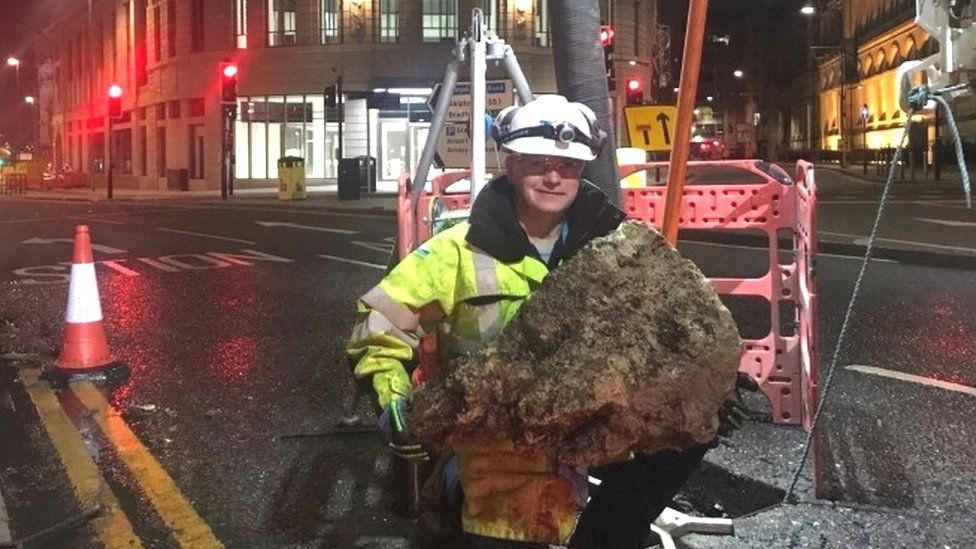Wet wipe pollution: 'Fine to flush' message still not understood
- Published

We've all been told that flushing wet wipes down the toilet is a big no, but these disgusting pictures show us why we should be listening.
Billions of the wipes containing plastic are still being used every day, leading to blocked sewers and river pollution.
An MP is trying to make a ban on these type of wipes the law.
And water companies want to put an end to the confusing 'fine to flush' message on some packaging.
A spokesman says it suggests people can throw as many as they like down the toilet - which is leading to some truly revolting finds in UK sewers.
Yorkshire Water have this week shared new photos, taken by its teams removing fatbergs, guaranteed to put you off your food.
The stomach-turning snaps, taken at a sewer in Hull, show how wet wipes and sanitary towels can clog up pipes - with the company saying it spends "millions" in resolving blockages.
Its director Ben Roche says biodegradable and 'fine to flush' wipes don't break down in the sewer network.
"Those labelled 'fine to flush' often indicate only one wipe should be flushed at a time, but often this is not followed or understood by customers, with less than half saying the logo indicated only one wipe should be flushed at a time," he says.
"Even then, these wipes generally contain plastic so do not break down in the sewer as toilet roll does."
What causes fatbergs?
The main concern is that flushed wet wipes don't disintegrate and stay in the system for a long time - before eventually ending up in the sea or clogging up river banks.
So what are the government going to do about it?
Labour MP Fleur Anderson thinks a ban on wet wipes containing plastic is "very achievable" and is trying to make it law.
"It's still the case that we use at least 11 billion wet wipes a year, that it is in 90% of material that blocks loos, and it costs £100 million to water companies to clear those blockages," she said in the House of Commons this week.
But the Putney MP's Plastics (Wet Wipes) Bill is unlikely to become law without support from the government support.
Environment minister Rebecca Pow says they want to make sure that if a ban is brought in, it doesn't have knock-on effects that will cause similar problems.
"What I would say to everybody is if you don't need to use a wet wipe don't, but also don't chuck them down the loo," she adds.
- Published21 June 2022
- Published23 February 2022
- Published30 September 2021
- Published17 March 2020
- Published26 October 2016